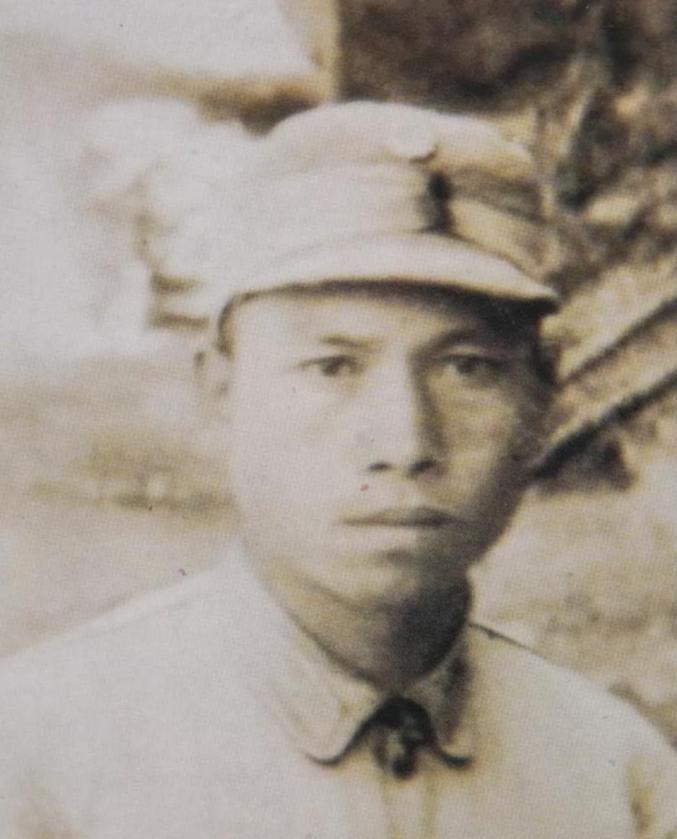He was a graduate of the Huangpu 8th class, serving as a company commander in the Dian Army, why did he later go to Yan'an Kang Da to study in anonymity? What's going on?
His name is Zhu Jiabi, a native of Longling, Yunnan.

Zhu Jiabi studied in Kunming as a teenager, and at the age of 18, he was admitted to the Officer Corps of the Yunnan Army, and later into the Yunnan Daowu Hall to study, and because of his excellent results, he was sent to the 8th phase of the Whampoa Military Academy for further study. In 1933, after graduation, Zhu Jiabi returned to the Dian Army and successively served as a platoon leader, a company commander, and a squadron leader.
As a junior officer in the Dian Army, why did Zhu Jiabi later defect to Yan'an to participate in the study and revolution of the Anti-Japanese War?
The main reason for this was that he planted a revolutionary seed when he was in military school. During his studies at the military academy, he joined the Yunnan Esperanto Society organized by Zhang Jingqiu with fellow villager Fei Bing. Fei Bing joined the party in 1928 and was one of the underground party leaders in Yunnan. Therefore, in the process of learning and communicating with Fei Bing and other self-taught Esperanto students, he began to come into contact with advanced revolutionary ideas and concepts, thus planting a seed of yearning for revolution in his heart.
In 1938, Long Yun, then chairman of Yunnan Province, appointed Zhu Jiabi as the regional captain of the Supplementary Training Brigade of the Dian Army. During this period, Zhu Jiabi, who longed for Yan'an, under the introduction of the revolutionary general Zhou Suyuan, took the initiative to give up his good work and life, ran away in anonymity, went through hardships, traveled to Yan'an, and entered the "Kang Da" study under the pseudonym of "Tao Yinqian" and joined our party.
Zhou Suyuan was born in Guizhou as a modern democratic revolutionary, and when the Second and Sixth Armies of the Red Army arrived in Bijie in February 1936, the 57-year-old Zhou Lao organized the Guizhou Anti-Japanese National Salvation Army and accompanied the Red Army on the Long March. After arriving in Yan'an, in addition to teaching at the "Kang Da", he also used his prestige to do the united front work of the upper echelons of the Kuomintang. After the Outbreak of the War of Resistance Against Japanese Aggression broke out in full swing, Elder Zhou was appointed as a senior counselor of the Eighth Route Army, and soon he left Yan'an and went to Chongqing, Chengdu, Kunming, Guiyang, and other places to make extensive contacts with people from all walks of life, publicized the Communist Party's anti-war ideas and the heroic deeds of the Eighth Route Army in killing the enemy, and mobilized a group of intellectual youth to rush to Yan'an.
After graduating from the "Kang Da", Zhu Jiabi stayed in northern Shaanxi Public School and the Central Organization Department as an officer.
In January 1939, Zhu Jiabi and several Yunnan students wrote a report to the Organization Department on the work of work in Yunnan, which attracted the attention of the superiors. Minister Chen of the Organization Department talked to Zhu Jiabi, and Zhu Jiabi told Minister Chen that his uncle was a division commander under Long Yun and was a colleague of Lu Han, lu Daoyuan was his uncle's subordinate, and many of the regimental commanders and battalion commanders in the Dian Army were his former colleagues, and many company and platoon leaders were his own students. It was precisely because of this relationship that Minister Chen introduced him to the Chongqing office of the Eighth Route Army. At the end of 1940, Zhu Jiabi was sent by Zhou Gong to Yunnan to carry out work.
After returning to Yunnan, Zhu Jiabi quickly gained the trust of all parties by taking advantage of his social connections, and after entering the Dian Army, he was quickly promoted from battalion commander to deputy regimental commander and regimental commander, and actively, cautiously, and skillfully carried out work for the party.
Soon after, however, Zhu Jiabi's revolutionary work in the Dian army was detected by Kuomintang agents and put on the second blacklist of assassinations by The Yunnan garrison commander Huo Yizhang. Because Zhu Jiabi was not in Kunming at that time, he escaped the disaster. After learning the news, Zhu Jiabi left the Dian army to hide in Burma under the organization's arrangement.
Until the end of 1947, Zhu Jiabi returned to Yunnan according to the instructions of the Provincial Working Committee, and in the following year led the uprisings of Lunan Guishan and Mile Xishan, and established the first column of the Yunnan People's Self-Rescue Army, serving as commander and later serving as deputy commander of the Qianbian Column in Yunnan.
In 1949, Lu Han, then chairman of Yunnan Province, learned that zhu Jiabi, an old subordinate, had been appointed deputy commander of the "Border Column", and immediately sent his cronies of Long Zehui, commander of the 93rd Army, to contact Zhu Jiabi. Zhu Jiabi secretly negotiated with Long Zehui twice, actively cooperated with the central authorities to directly carry out united front work with the Luhan Ministry, successfully established united front relations, and promoted the process of Luhan's Kunming Uprising.
After the founding of New China, Zhu Jiabi, an officer of the Yunnan Army who graduated from Huangpu, has become a senior officer of our army, successively serving as deputy commander of the Kunming Garrison Headquarters, director of the Public Security Department of Yunnan Province, chief of staff of the 14th Army of the People's Liberation Army, vice president of the Nanchang Infantry School, and deputy commander of the Yunnan Provincial Military Region.
In October 1992, General Zhu died at the age of 82.